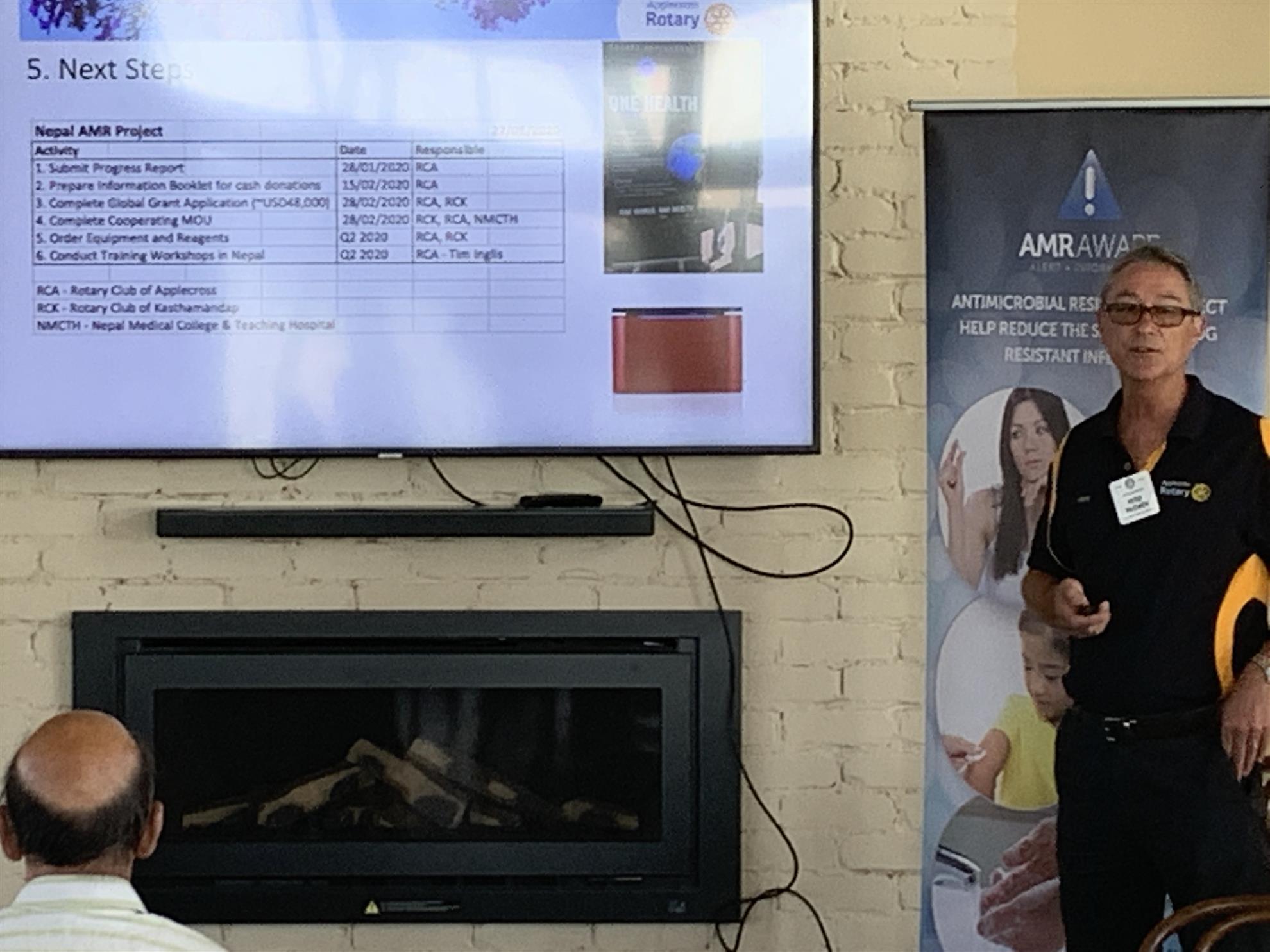
And that’s why Applecross Rotary is trying to get the attention of Rotary International, via a Rotary Action Group (RAG), and demonstrating what can be done about this fact, via a project in Nepal.
President Nominee Peter McEwen reported on his recent fact-finding trip to Nepal, funding by a District Grant, to determine if the conditions required for Global Grant, to improve diagnostic capabilities, could reduce the rate of maternal and infant mortality from 239/100,000 live births to less than 10, as is the case in Australia. Most of the deaths in Nepal are due to untreatable sepsis caused by multi drug resistant infectious agents - AMR.
The burden of AMR is high in Nepal due to inappropriate use of antibiotics, poor health hygiene and sanitation, and poor infection control programs .
Proposal
It is planned to establish molecular methods (PCR), provide equipment and professional in-house training for rapid detection of AMR drug resistant infections. Molecular methods will provide results in 10 hours as opposed to 3-10 days using conventional culture-dependent methods.
Peter’s visit to Kathmandu early last month:
- Confirmed the benefits of the project
- Confirmed the support of the Rotary Club of Kasthamandap (RCK) as Primary Host Sponsor
- Confirmed the support of Nepal Medical College & Teaching Hospital (NMCTH) as the Cooperating Organisation.
Outcomes
There was unequivocal support and commitment to the project.
NMCTH agreed to:
- Provide a dedicated research laboratory
- Provide replacement reagents on an ongoing basis
- Provide staff for training, testing and research at their cost.
RCK agreed to:
- To be the “Project’s” host sponsor
- Assist in the MOU preparation
- Receive, inspect and control the delivery of the equipment to NMCTH
- Apply for the removal of 5% customs tax (13% VAT will apply)
- See that all accounts have been received and paid
- Monitor and follow up on agreed reporting deadlines
- Assist in final report preparation.
The provision of molecular methods (PCR), equipment and professional
in-house training by Professor Tim Inglis and PhD student Subha Shrestha will ensure rapid detection of AMR drug resistant infections.
Beneficiaries:
- Nepalese people – hundreds every year will receive faster and more accurate diagnosis and treatment of sepsis and antibiotic resistant infections
- Technicians – initially 3 medical/microbiology professionals will be trained in the use of the PCR equipment at NMCTH. Staff will train others.
Medical Researchers – data collected on a genetic level will provide doctors with guidance for proper antibiotic treatment.
Peter finished his presentation by advising that the report on his visit will be submitted to PDG Pushpa Pushpalingham at District 9465 this week and a Global Grant application for US$48,000 will be submitted by 28 February. An answer is expected within 4-6 weeks.